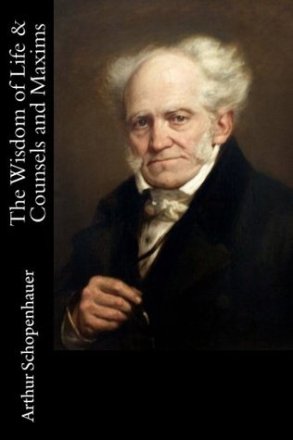
In The Wisdom of Life, Schopenhauer explains how one can order his life by achieving intellectual strength and freeing oneself from the clutches of irrational impulses that most of the society suffer from.
Schopenhauer divides the blessings of life in 3 different classes –
- What a man is; under this, he discusses how important a man’s personality is to himself. In personality, he covers a lot many topics such as a person’s mental and physical health, morals, attitude, beauty etc.
- What a man has; mainly what property he/she holds. What kind of possessions he/she holds dear.
- How a man stands in the estimation of others; in which he discusses the importance of a person’s reputation, fame and other’s opinion.
 Schopenhauer strictly believes that an intellectual man possesses a personality which can be a provider for almost any kind of entertainment really needed to survive and thrive with pleasure even. He argues that a man who is intellectually very sound needs less from the outside world. He founds most of the answers inward and hence does not have to look outward for things like companionship, fun, entertainment, pleasure etc. Schopenhauer believes if someone truly wants to live a successful life, they need to find be more focused on developing their own intelligence in various matters.
Schopenhauer strictly believes that an intellectual man possesses a personality which can be a provider for almost any kind of entertainment really needed to survive and thrive with pleasure even. He argues that a man who is intellectually very sound needs less from the outside world. He founds most of the answers inward and hence does not have to look outward for things like companionship, fun, entertainment, pleasure etc. Schopenhauer believes if someone truly wants to live a successful life, they need to find be more focused on developing their own intelligence in various matters.
Thus, according to him, personality is the best and foremost trait on which the whole existence of a person depends. The other two factors are the ones which man can live without and are only required when there are serious deficiencies in someone’s personalities. He firmly specifies that it is essential that a person should not be defined by his/her possessions or even company he/she keeps. In the third class as well, respect is the only trait which he believes is worth chasing. He harshly criticises the people who run for fame and rank.
Now all these views are really very easy to get behind. But I urge you to stay with me a minute. Remember that this book was written in the mid 19th century Germany and thus, does contains some aspect which will be very hard to accomplish in the present world. Also, it does not help the cause that the author is very blunt about his views, some of which might be hurtful to some sections of the world. Nevertheless, I will stay true to what I actually felt after reading this.
His views about developing an intellect which makes you more self-sufficient are worth checking out. But then he says,
“An intellectual man in complete solitude has excellent entertainment in his own thoughts and fancies, while no amount of diversity of social pleasure, theatres, excursions and amusements, can ward off boredom from a dullard.”
I feel that in present times, even an intellectual man is incomplete without the art of being able to interact with the society. Being intellectual in Schopenhauer’s dictionary might be different in current one. Nowadays, being socially interactive is a talent in itself and should be cherished.
He has written some amazing paragraphs about the pursuit of finding one’s true qualities and making advantageous use of them. It has the essence of the current conditions where many of us might earn lots but won’t be happy because they’re not doing what they actually love. Here, Schopenhauer stresses much on figuring out what one likes and keep at it to live happily and avoid boredom. But, what I most like about it was this, which suggested to at least try something out before making assumptions,
“Still, in a case of this kind, it should be our care, especially in youth, to avoid the precipe of presumption, and not ascribe to ourselves a superfluity of power which is not there.”

Schopenhauer urges people to not be ordinary. As the ordinary man tries to find happiness in things around him, external things like property, money, children etc. When he losses something of this sort, the foundation of his happiness is destroyed. Very innovatively, he has explained how it is best that the centre of gravity for any person should be the person himself.
Most of Schopenhauer’s theories can still be applicable today, but their remains a few which are better left unread, not because they’re radical and wrong, just because applying them now might not result in desirable outcomes. Some of us like me might also find this model highly simplistic for our times. But apart from a few outdated (and sometimes a little offensive) views, the book can be picked up at least once, especially by someone who is into philosophy about wisdom and happiness in life, and also those who are looking for some ideas on how to develop oneself to have a sound mental and physical health.